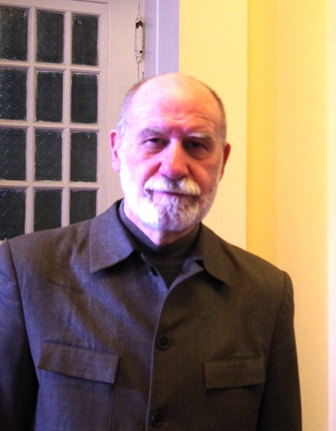About us
The International Centre for South Asian studies (ICSAS) was founded in RSUH at 2010.
LINK: PROGRAM
The topicality of foundation the ICSAS is caused by the fact that South Asia is one of the most important and fast developing regions in modern world. Seven basic countries (The Islamic Republic of Afganistan, The Republic of India, The Islamic Republic of Pakistan, The Federal Democratic Republic of Nepal, The Democratic Socialist Republic of Sri Lanka, The Kingdom of Bhutan) cover surface area that is nearly equal to the area of Western Europe. Overall, it accounts for about more than one and a half billion people. Three countries of South Asia (India, Pakistan, and Bangladesh) are among the top ten most populous countries in the world. India and Pakistan are the nuclear weapon states. Both India and Pakistan are included in the number of the most populous Muslim-majority countries. The Republic of India is one of the fastest-growing major economies. India is member of BRICS ans SCO. In this way, South Asia takes up one of the key positions in the world. In case of the humanities and social science South Asia is quite varied. South Asia is characterized by ethnic diversity, a great number of languages and a wide range of religious communities and different kinds of human communities ( from “primitive” tribes to modern city dwellers). South Asia is supposed to be attractive for cultural anthropologists, linguists, sociologists, religious scholars, economists, political scientists. There is an old and great tradition of comprehensive studying South Asia in this country: its languages, literature, religious, history, economics and society. Unfortunately, this field of science hasn’t been developed properly lately because of lack of scientific communities. There have been philological and historical basis for studying South Asia at the Department of History and Philology of South and Central Asia at Institute for Oriental and Classical Studies. At the same time it’s not enough for comprehensive studying the problems of South Asian region and training professionals specializing in modern problems of the development of regional countries.
The following tasks are set before the centre of South Asian studies:
1.Arranging thematic forums, conferences and symposiums with the participation of leading Russian and foreign scientists; work on scientific publications;
2.Training qualified experts in South Asian studies, improving student’s skills and broadening their mind by giving lectures in regional studies;
3.Forming connections with leading educational and scientific centers of South Asian studies in our country and abroad (in South Asian, Western Europe, Northern America countries and Japan) by means of student exchange programs and scientist of regional studies exchange; reading lectures and giving lessons.
Extension of a geographic field of studies and academic work of South Asian centre is going to be extended in the future. Moreover, the inclusion in the sphere of its interests Southeast countries, which are historically and culturally connected with South Asian countries.
ICSAS joined two study-rooms:
Mahatma Gandi- Jawaharlal Nehru study-room (room 408, block 3, 3d floor)
BRICS study-room (Room 1116a, block 5, 10th floor)

Alexander Stolyarov, Director of International Centre for South Asian Studies RSUH
Indira Gazieva, Deputy Director

Liliya Zaripova, junior research fellow
Students of Hindi group of Department of Linguistics:
1. Burda Anastasiya

2. Dumnova Ksenia

3. Ermalyuk Margarita

4. Zvyagintseva Alina

5. Shah Elena

6. Sherbakova Varvara

7. Shitikova Anastasia

Students of the Department of Foreign Regional Studies and Foreign Policy of the Faculty of International Relations of the Institute of International Relations and Political Science


1. Volodova Anna Andreevna
2. Evgrafova Yulia Alekseevna
3. Zotova Sofya Olegovna
4. Imaikina Alina Vladimirovna
5. Levkovskaya Elizaveta Eduardovna
6. Likhacheva Lyubov Andreevna
7. Lyubimova Svetlana Mikhailovna
8. Nikitina Galina Dmitrievna
9. Poteshkina Ekaterina Yurievna
10. Prozorova Alena Dmitrievna
11. Reshetova Elizaveta Yurievna
12. Selivanova Anastasia Anatolyevna
13. Sepeleva Alexandra Igorevna
14. Sigida Vlada Vladimirovna
15. Strukova Victoria Pavlovna
16. Styazhkina Tatyana Olegovna
17. Khoroshiilo Polina Mikhailovna
18. Shamray Ulyana Yurievna
